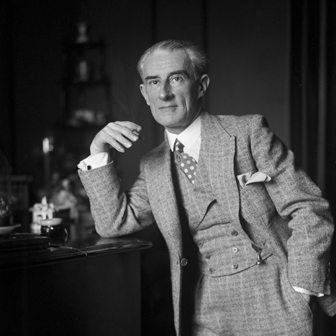“Oh, don’t deceive me! Oh, never leave me!
How could you use a poor maiden so?”
Songs of betrayal are nothing new. From the troubadours of the High Middle Ages lamenting the cruelty of their lovers to Taylor Swift’s “Look What You Made Me Do,” violation of trust, feelings of victimhood and a desire for revenge have been frequent subjects of the lyric art.
My favourite among the subgenres is the gloat, when the leaver himself is left. “So you met someone who set you back on your heels / Goody, goody,” goes Johnny Mercer’s lyric for Matty Malneck’s 1936 hit; Julie London, in Arthur Hamilton’s song, tells her apparently penitent lover to “Cry me a river / Cause I cried a river over you.”
There’s also the song as an outpouring of bile. I’m thinking here of Bob Dylan’s “Idiot Wind” (“blowing every time you move your teeth”) or Marianne Faithfull’s blistering account of Heathcote Williams’s words in “Why D’Ya Do It?” — a song so explicitly vituperative that as recently as 1980 it was left off the Australian pressing of her album, Broken English. And there are score-settling songs such as Alanis Morissette’s “You Oughta Know” or Rihanna’s “Breakin’ Dishes.”
Faithfull, Morissette and Rihanna — Dylan, too, in his way — generate musical energy from the anger in their lyrics. There’s a compelling thrill to those snarling voices and we are quickly on the singer’s side.
Hearing about Lily Allen’s West End Girl before hearing the music itself, I imagined something similar, but Allen’s album is less likely to kindle energy than to sap it. The story, laid out in forty-four minutes of excruciating detail, is as follows (I’ll condense it).
Lily, her husband and children move to New York and buy a big expensive Brownstone that the husband wants but Lily isn’t quite sure about. Almost immediately, she returns to London to be in a West End play. Lily and her husband have an arrangement, an open marriage that allows them to pay for sex with strangers but not get involved. You can see how this might go wrong. The husband can’t help himself and Lily, back home in the brownstone, finds incriminating evidence on his phone regarding someone called Madeline. Not only has he had sex with her, but they’ve played tennis! Marital unravelling ensues.
Diehard Allen fans are given plenty to chew on, the details revealed in the album seemingly close to the details of Allen’s actual marriage to the actor David Harbour. Knowing nothing about Allen’s life, prior to this album, I have found it hard to become emotionally invested.
Many of the strongest moments of the album are spoken — acted, you might say. There’s the abrupt interruption to the opening title track, Allen performing one side of a phone call with the husband: “Right… erm… okay… well… I mean it doesn’t make me feel great… what?… if that’s what you need to do then…” Another song, “Tennis,” is interrupted by repeated demands to know “Who’s Madeline?” Then, on a song entitled “Madeline” we hear a letter from Madeline to Lily in Madeline’s voice, confirming that it really is only about sex (in spite of the tennis) and wishing her “love and light.”
And the music? If it had a colour, it would be pink. The tunes are simple and pleasingly catchy; Allen’s feathery vocals are occasionally larded with Auto-Tune, and everything skips gently along. The sub-disco danciness of “Pussy Palace” had me singing my own slightly limp version of Laura Branigan’s “Gloria” over the top of its chorus (it doesn’t quite fit). But the music as a whole is consistently bland, as though in a sort of Valium fog, which I suppose might be the point. Everything is at much the same tempo, momentary relief coming on “Nonmonogamummy,” when British MC Specialist Moss turns up to usher in a couple of minutes of much-needed energy.
I went back to Allen’s 2009 album, It’s not Me, It’s You (a line, incidentally, repeated on the final track of West End Girl). At its heart is a song pithily entitled “Fuck You” in which the singer excoriates a racist homophobe. The political skewering is exact, the production jaunty, the singing cheerful (she’s evidently enjoying the skewering) and the song was an international hit. What’s more, in the context of the album, full as it is of musical variety, the song hits its mark because it stands out.
The success of some of the greatest pop music has hinged on a contradiction between words and music, but I’m not wholly convinced that’s what’s happening on West End Girl. The sweet delivery of Allen’s condemnation of her philandering husband might be construed as ironic and I guess that’s her intention. If she’s conjuring a Barbie Dreamhouse in sound, it’s a powerful image. But forty-four minutes of irony is too much for me (I have the same problem with a lot of Shostakovich).
And anyway, what if it isn’t ironic? •




